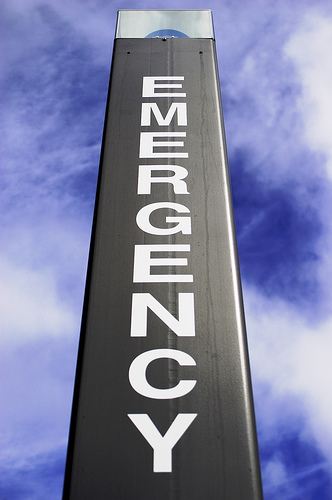Emergency Response through Social Media
 Last week I wrote a post about how Twitter helped save an injured triathlete who had taken a wrong turn, and crashed her bike during a race. Well it turns out that the demand for this kind of monitoring is pretty high. Apparently, “74% of Social Media Users Expect Cries for Help to be Answered Within an Hour”. Users believe that organizations like FEMA and the Red Cross should be (and 49% believe they are) monitoring platforms for these types of messages.
Last week I wrote a post about how Twitter helped save an injured triathlete who had taken a wrong turn, and crashed her bike during a race. Well it turns out that the demand for this kind of monitoring is pretty high. Apparently, “74% of Social Media Users Expect Cries for Help to be Answered Within an Hour”. Users believe that organizations like FEMA and the Red Cross should be (and 49% believe they are) monitoring platforms for these types of messages.
These organizations are reiterating the need to dial 911 first in the event of an emergency, but say that social media is a good plan B when phone lines are down, or 911 is overloaded. In the case of the triathlete, her phone had enough signal to connect to the web, but not to make a call.
My questions about this are:
- Which platforms will be used for this kind of message? Definitely Twitter. Maybe Facebook?
- Should organizations be monitoring less popular sites for disaster/emergency messages?
- Without a group dedicated to this (like 911 operators), what is the likelihood of these cries for help being consistently answered quickly enough?
- What kind of man power would this type of monitoring require?
- How would organizations find these cries for help? Is there a hashtag in place for this kind of message? If not, what would it be?
The triathlete was rescued through the response of a follower, not an organization monitoring for distress calls. Until there is a system in place for monitoring and responding to emergencies through social media platforms, users need to be well informed that this is not a guarantee.
What are your thoughts on this change in emergency communication? Is it beneficial for individuals, or more for community disasters? Would you rely on social media if you had an emergency?
Photo by Chris.Violette